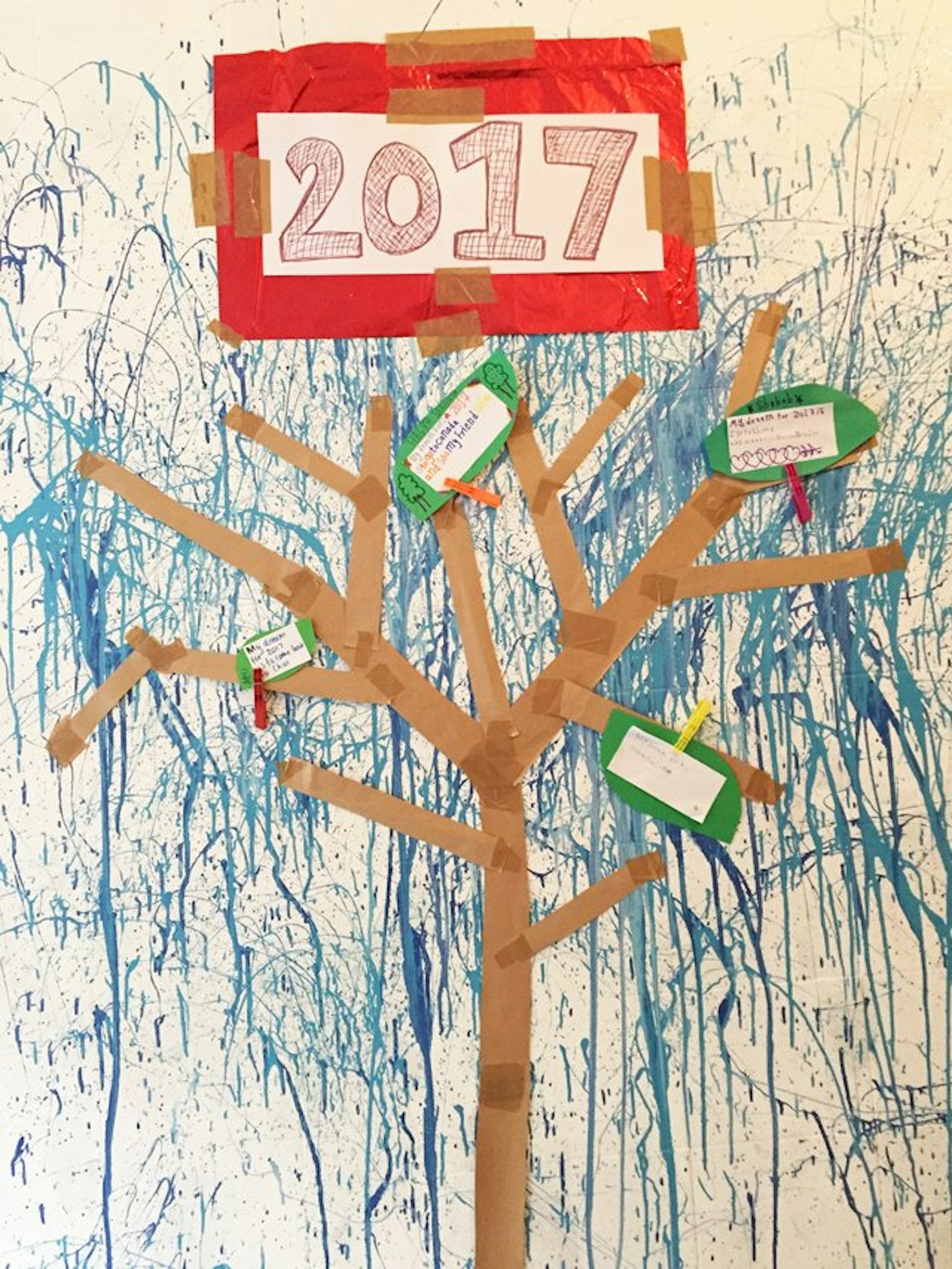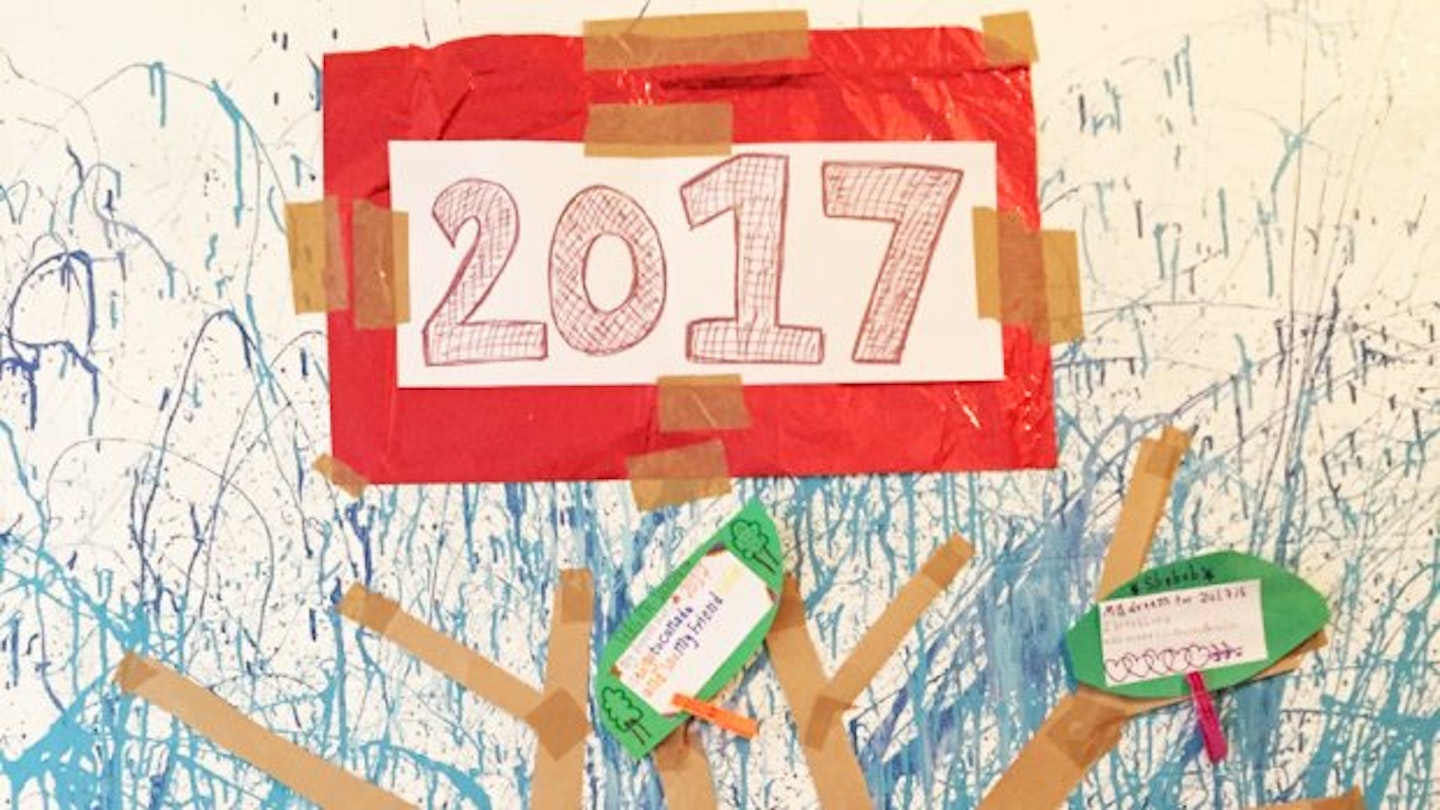'My dream for 2017 is to be a teacher' a small girl with hair bundled up under a pink crochet hat and a face mapped by light brown freckles, bends over a piece of green paper and writes, in slow, scratchy letters. It’s all I can do not to rip my shirt off and scream hallelujiah.
I spent this Christmas volunteering at a school for refugees on the Greek island of Chios. The school, which is now spread across a primary, high school and youth centre, was founded by a Swiss charity called Be Aware and Share. While they began life handing out clothes and food in Calais and Greece, the volunteers from BAAS (as they’re known to their friends) last year decided to set up a school in Chios after the 2016 EU-Turkey Deal landed most of the displaced residents in an international stalemate. If you missed it, this interesting piece of immigration legislation meant that any refugees crashing onto the beaches of this small Greek island could not only be put into detention or sent back to Turkey but, if they stayed, they’d be stuck in an often interminable limbo - unable to leave the island at all until their asylum claims have been processed - which could take years. My teaching assistant, himself a Syrian refugee who came to Chios last year, has just been given a hearing date in early 2018. He’s not allowed into Athens, he’s not being given asylum elsewhere in Europe and he can’t go home. Just like the students he’s teaching, he’ll be forced, in effect, to shrug out a life in the two refugee camps that have grown on the island; Souda and Vial.

When we talk of refugees we often, understandably, think of young men fleeing war, persecution, famine, death threats, and a failed state, in search of education, employment and safety in countries with more robust economies and a working infrastructure. What we perhaps don’t think of are the young women, the mothers, the daughters, the teenagers and the girls who also risked everything to walk, run, hide and even swim their way to something like a better future. There are plenty of them here.
These are the very girls who, every day, turn up in my classroom clutching donated rucksacks, wrapped in donated coats, their fingernails dirty beneath thin layers of nail varnish, ready, willing and thrilled to be learning English, maths, geography, music and how to cook. They are also, after years of stress, deprivation, fear and disorientation, learning how to be children once again. To trust an adult to walk them home at night; to share their pencils with a stranger speaking another language; to sit quietly as their classmates take off their coats; to run around a playground shouting out the days of the week at breaktime.
As the embers of 2016 finally puttered out, I asked my class to write out their dreams, their resolutions and their hopes for the new year ahead. I stuck a brown parcel tape tree onto the wall, cut out about 20 green paper leaves and asked students to peg their leaf-shaped wish onto this makeshift Christmas tree, to serve as a reminder during the next few, wind-whipped, snow-blown months.
The first, a young girl I will call Raabia, has a pink rucksack, a leopard-print raincoat, long brown curly hair and an almost-constant sniff. Her voice is deep and rasping like Ertha Kitt and she spent at least seven minutes trying to explain what a date tree was to me the other day in broken English. Her 2017 New Year’s Resolution?

My dream for 2017 is to go to Canada and see my friend Ghada, who I love.
The second, who I will call Maanah, first arrived in my lesson wearing a pair of jeans with that strange spray-painted worn effect, silver shoes and her hair tied up in a bun. She has a serious face, a younger brother in the primary school and lives in Souda where, in December, they had no electricity and no hot water. Her wish for the new year?
I want to go to Germany by bus.
Nour is a tom boy. A football fan, a guitar-player, she wears a plaid hooded shirt, trainers and eats her jam sandwich in less than five bites. Her spoken English is great, her writing is neat but her reading appears to have stopped some time around 8 years old. She’s thirteen now, jogging headlong into adolescence, taller than many of the boys and yet, look at her writing and she’s a tiny girl again. When I asked her to make a resolution, something to aspire to in the new year she wrote:
My wish for 2017 is play guitar concert at school
One of the older girls, Aalya, sat through an entire lesson wrapped in a blanket because her jumper was, in her words, ‘big, big and ugly’. She talks of one day being a fashion designer and is keen to help translate from English for the Farsi-speakers in the room. Her eyes are lined, lightly, with kohl and has either taken a shining to sun-in or has a ginger parent. I was quite surprised when she wrote that her ambition for 2017:
My dream is go to England because I would like to be a police woman.
Possibly the most moving of all these resolutions came from a girl I will call Saima. Her hair is like treacle - thick, shiny, almost-black. Her face is round, she gossips with her cousin in the front row and is desperate to take the register to avoid my clunky pronunciation of everybody’s names. She lives, I think, in Vial and is one of the few students not to have a mobile phone. Her new year’s wish?
My dream for 2017 is go back to Sirya and I see my cousin.
And then, finally, we come to Khalida. She’s quiet, smaller than her contemporaries, from Iraq. She taught me that little girls in Iraq walk joining little fingers, not holding hands and she is a massive fan of the trusty old t-shirt layered over long sleeve t-shirt look. As she pegged her dream leaf to the tree I looked down and read:
My dream for 2017 is to watch a film on television.
I could have wept. Instead I gave a sticker, sharpened her pencil and got her out a new worksheet on capital letters. Because that is what teachers do. Apparently.
You might also be interested in:
'I Teach Young Male Refugees In Germany And The Headlines Don't Tell The Whole Story'** **
What It's Like To Be A 20-Something Female Refugee Living In Germany
Follow Nell on Twitter @nellfrizzell
This article originally appeared on The Debrief.
